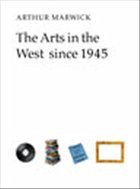The 'Arts' hold a revered and respected place within modern Western society - but what exactly defines 'culture'? What gives it this enigmatic status? What influences its composition and propagation? What controls and limitations is it subject to? And what can it achieve within our world? Arthur Marwick tackles these issues head on, with a detailed and eclectic account of the arts in the West since the Second World War. He looks at the full range of possible candidates for the category of 'art', from both high and popular culture: from literature to pulp fiction, from art-house cinema to soap-opera, art music to rock and pop. The book also looks at the fascinating diversity of twentieth-century art in the context of the social, technological, and political events, movements, and developments that have shaped our history - such as the holocaust, television, and feminism. Marwick examines how these factors have affected the cultural output of Western society since 1945, and in turn how art has fed back its own agenda and priorities into society.
In Arts in The West Since 1945 Arthur Marwick examines how the 'arts' respond to, or react against historical developments, movements, and events. He divides his analysis into three periods of study: War, Cold War, Recovery, and Affluence 1945-1957; The Cultural Revolution and After 1958-1979; The Last Two Decades of the Century. His work offers an interesting and provocative voice to the culture debate.
In Arts in The West Since 1945 Arthur Marwick examines how the 'arts' respond to, or react against historical developments, movements, and events. He divides his analysis into three periods of study: War, Cold War, Recovery, and Affluence 1945-1957; The Cultural Revolution and After 1958-1979; The Last Two Decades of the Century. His work offers an interesting and provocative voice to the culture debate.
